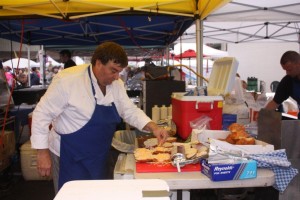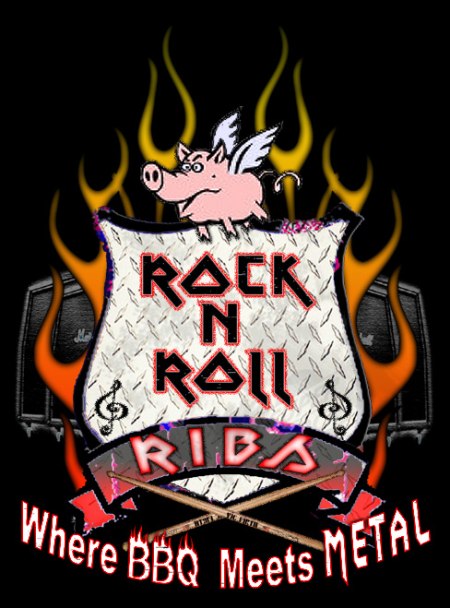Tanya Banuelos of the Argus Observer writes:
As the last few weeks of summer vacation dwindle down and families are taking advantage of outdoor food at barbecues, picnics and the county fair, it’s time to talk about warm weather and food safety.
With 100-degree weather expected this week, it’s important to remember how much sooner food can become perishable when it’s out in the heat.
When it comes to food safety, food handlers at the Malheur County Fair must adhere to health guidelines, and an inspector is on site throughout the week. And as with every year at the fair, for those who sell consumable goods, food safety is a priority for vendors, such as Awesome Blossom and Fiesta Guadalajara.
Rely on equipment
One of the key details to remember is the importance of temperature.
Modesto Vega, co-owner of Fiesta Guadalajara, said he is able to keep foods at the appropriate temperature during the fair with commercial equipment.
I have inspected my fair share of temporary events including festivals and fairs and not all vendors are equipped with commercial fridges, freezers, etc. If you got them, all the power to you. I would typically see a lot of residential equipment, some good and some bad. As long as cold/hot holding temperatures are maintained, I’m good.
There have been a myriad of outbreaks associated with outdoor events nationally and internationally. The ethnic nature and diversity of foods prepared coupled with extreme temperatures pose unique problems for public health types. Public health inspections of said facilities rarely assess behavioral practices; rather, they are focused on meeting Regulatory standards. Time commitment and lack of public health staff have a lot to do with this, I have experienced this personally.
Effective food safety training during these events is critical. A number of operators at fairs and festivals are typically required to take a mandatory 8- hour food safe course or variation thereof prior to the event. I would rather see on-site hands-on training during vendor set-up focusing specifically on their menu items to ensure food safety, a mini HACCP if you will. If a vendor intends on serving hamburgers, well let’s go over what you need to do to ensure that no one barfs from your hamburgers.
Therman Collins, who has been a food vendor at the fair for eight years, said the key to keeping food safe for consumption is to make it fresh and send it right on out, adding that when it comes to food safety, “we know it all.”
Time, temperature equally important
When food is already cooked, especially with warm temperatures, how long people keep their food outside is a cause for concern, according to the Oregon Health Authority.
Most picnic foods will only be safe on the table for two hours; however, if the air temperature is higher than 90 degrees Fahrenheit, then the food is only safe for an hour.
Most importantly, food should be kept out of the danger zone, where cold foods are recommended to be kept below 40 degrees Fahrenheit, and hot foods above 140 degrees Fahrenheit, according to the United States Department of Agriculture.



 Coupling my conversation with a link that Doug came across about
Coupling my conversation with a link that Doug came across about